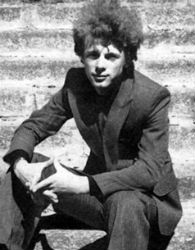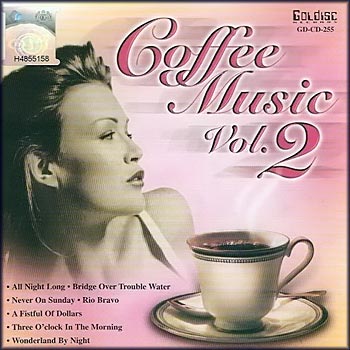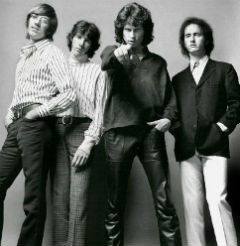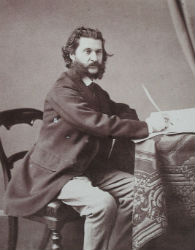Bard Bulat Okudzhava
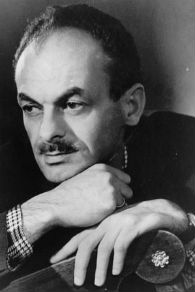 Many legends are associated with the name of Bulat Okudzhava. No wonder, because such personalities appear in the poetic and musical world infrequently and deservedly become legendary.
Many legends are associated with the name of Bulat Okudzhava. No wonder, because such personalities appear in the poetic and musical world infrequently and deservedly become legendary.
His poems were sorted into quotes, songs became symbolic and symbolic for the sixties, and Bulat Shalvovich himself was the brightest representative of his generation.
Unenviable childhood
It so happened in nature that the fate of talented people is full of personal tragedies, struggles, searches, wanderings and other hardships. Probably only a person who has experienced and experienced a lot can create works for ages. Only then they are filled with true meaning, deep and meaningful, penetrate the souls and find a response there. Such was the fate of Bulat Okudzhava.
His life coincided with an era of change, the globality and consequences of which only a few could understand and appreciate. Bulat Okudzhava was born on May 9, 1924 in Moscow. His parents came to the capital to study on the party line. Bulat’s father was Georgian, and his mother was Armenian. At the same time, they named their son Dorian in honor of the famous literary hero.
Thunder struck (as for many families of that bloody period of Soviet history) in 1937, when Shalva Stepanovich was arrested on a false denunciation of his allegedly counter-revolutionary Trotskyist work. Then there was the verdict and execution. The same fate befell the father’s siblings. In 1939, Okudzhava’s mother, Ashhen Stepanovna, was also arrested. First, she was sent to camps in the Karaganda region, and ten years later she was sentenced to eternal settlement in the vast vast Krasnoyarsk Territory. Bulat and his brother Victor were transferred to Moscow by their grandmother, and then aunt from Tbilisi took her to her upbringing.
In Georgia, Bulat Okudzhava graduated from high school, worked at the factory as an apprentice turner, and was looking forward to coming of age to go to the front. poet Bulat Okudzhava In August 1942 he was sent to the mortar division, in which he participated in battles, and in 1943 was wounded near Mozdok. Okudzhava was demobilized and sent to the rear. He passed exams externally, received secondary education and entered the faculty of philology at Tbilisi University.
After graduation, Bulat Okudzhava went to work as an ordinary teacher of Russian language and literature in the most ordinary Kaluga village. It was there, in Kaluga, near Okudzhava that the first small book of poems was published.
Bulat Shalvovich became popular in narrow circles of people who understand and think. At that time, he wrote the songs “Midnight Trolley”, “Not Tramps, Not Drunkards,” “Sentimental March,” “Song of Lenka the Queen” and others.
The first evening of Bulat’s song was held in Kharkov in 1961, and the very next year in the film “Chain Reaction” he performed the song “Midnight Trolleybus”.
Soon, the work of Bulat Okudzhava became interested in “competent organs”, his songs with the guitar turned out to be too unusual for many. Custom-made satiricals began to print about him in newspapers, so his poems did not leave anyone indifferent. Resentment, irritation, rejection – this is also a reaction to Okudzhava, the main thing is that there was no indifference.
They took up Bulat in the Union of Writers of the USSR. His songs were mercilessly criticized, believing that such art was not appropriate for Soviet heroic youth, did not reflect its ideals, aspirations, aspirations. Criticism attacked his novels “Poor Avrosimov” and “Adventures of Shipov,” but the intelligentsia, on the contrary, showed genuine interest in them. But it was membership in the Writers’ Union that allowed him to print several books of his poems. His songs began to be performed by some other singers.
Many at that time were annoyed by Bulat Okudzhava’s non-publicity, he had no signs of star fever, he did not pursue fame.
The finest hour of Bulat Okudzhava struck when the tape “Belorussky Train Station” appeared on the screens, in which his piercing march “We need one victory” sounded. This so-called trench song was proposed to be included in the film by screenwriter Vadim Trunin. Okudzhava presented the composition to the court of director Andrei Smirnov and composer Alfred Schnittke. The reaction of the two masters was radically different – Smirnov did not like the melody at all, and Schnittke heard a future military hit in the tune of Okudzhava. Schnittke wrote an orchestral version of this march and insisted that the record that came out after the film be attributed to Bulat Shalvovich.
During tours abroad he was often offered to stay in European countries forever, but he loved Moscow and did not imagine his life in another city or outside the country in which his ancestors lived. Only once did he decide to stay in France to improve his shaky health. There he died in a military hospital in a suburb of Paris on June 12, 1997 after the flu.
He was idolized, envied and hated. This is a typical situation for an outstanding person, who was Bulat Okudzhava. Time judged everyone and (as he himself said) preserved for people his best works.
